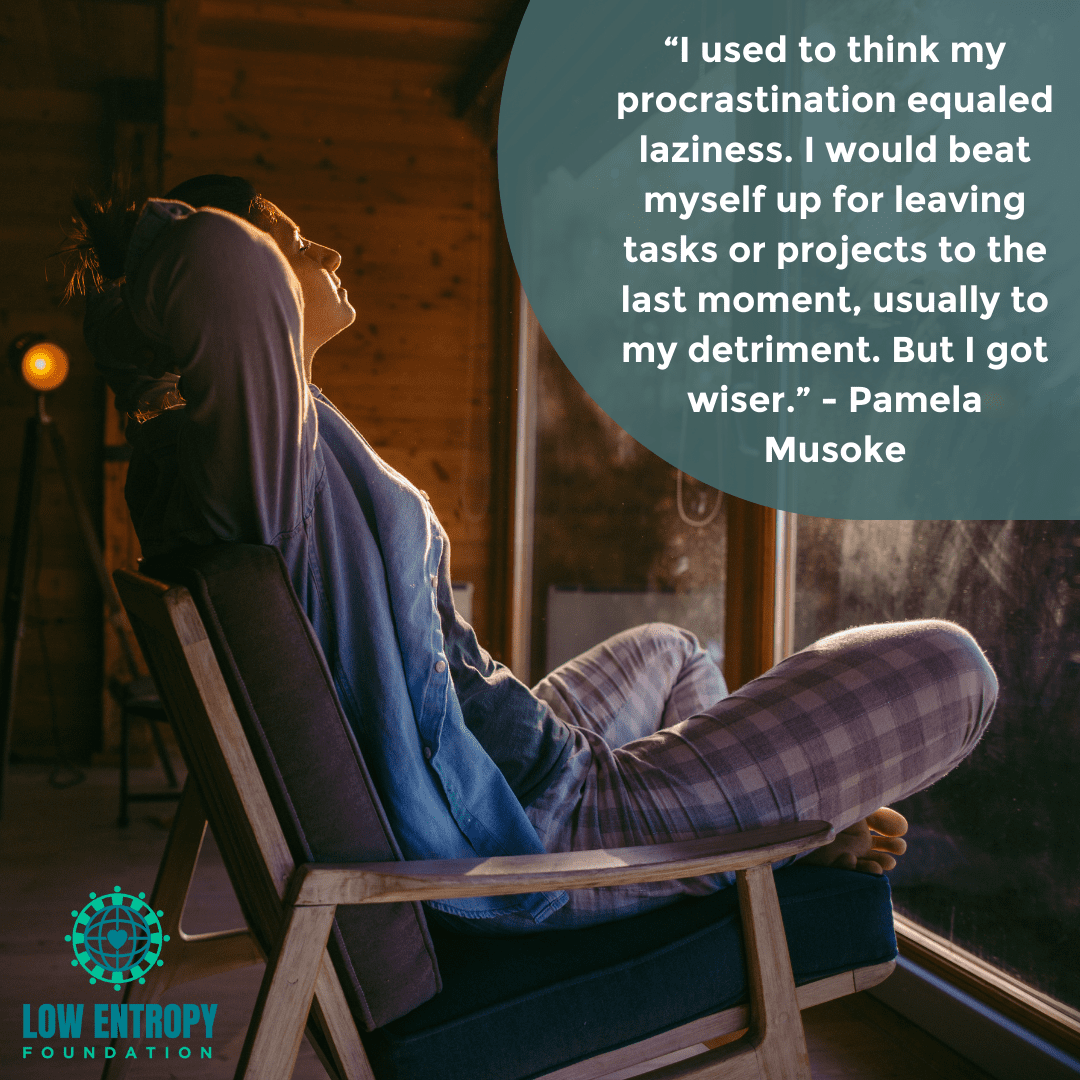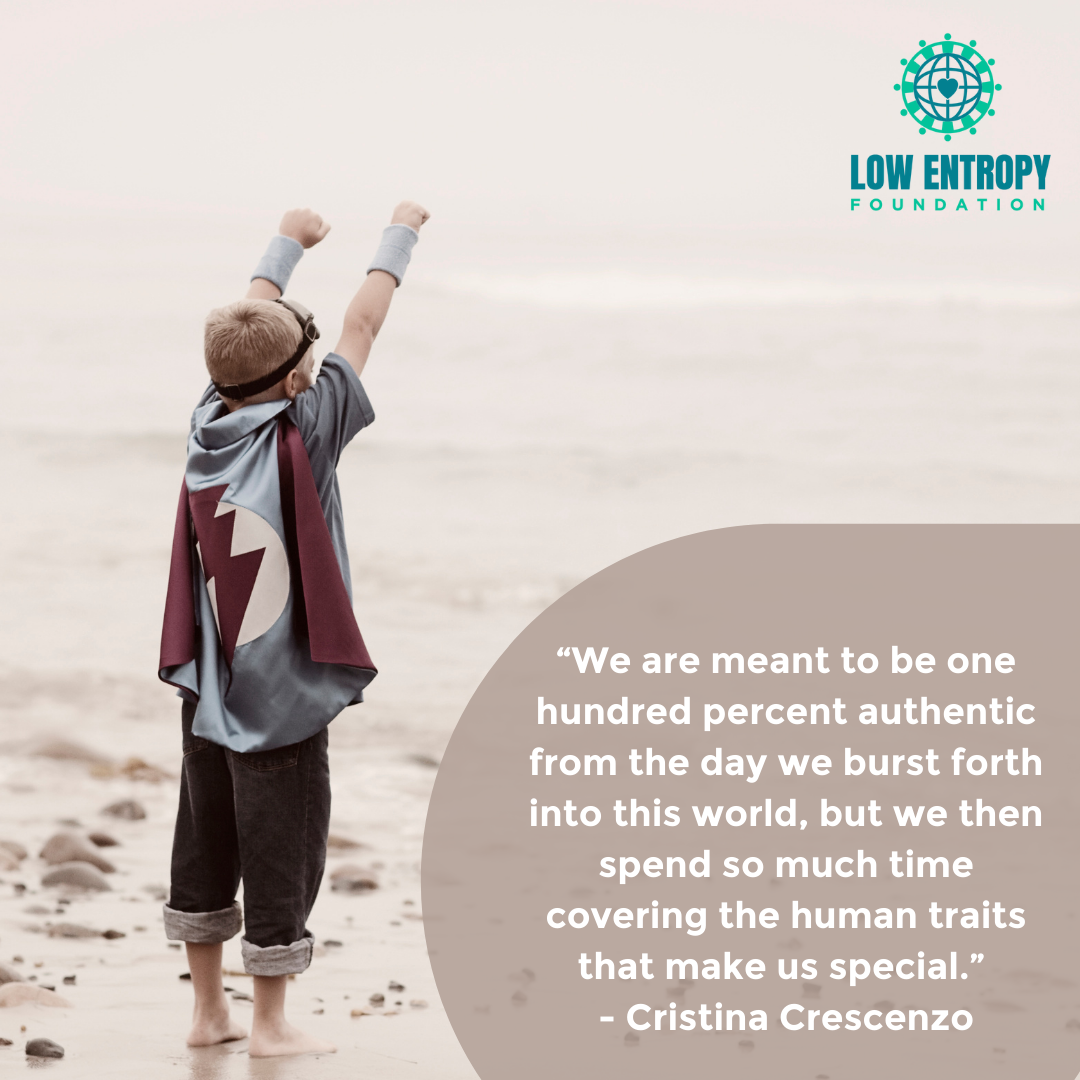Pamela Musoke (she/her/hers), Low Entropy Volunteer Writer
You lack self-confidence.
That’s a loaded observation. How does it make you feel when you say it? Or when someone else says it?
For some, admitting it is a way of hiding, using it as an excuse to maintain the status quo. It is where we would rather be, and maybe that’s enough for now. We all have our seasons.
Other times, it’s viewed, at first, as this massive chasm between where we are and where we desire to be, which is both scary and daunting. But eventually we find ourselves gravitating towards wanting, and soon, a call to action! Our wants trump our fears! Well, truthfully, it often ends up being more of an ebb and flow between the two states. I say this because we also hesitate as we become acutely aware of every single flaw we think may bring about failure and impact how we progress.
The trick is distancing yourself enough to recognize these are self-limiting views, brought on by past experiences that have, sometimes, injured the way we value ourselves. This may be one of the most aggravating, yet self-loving acts of compassion we can perform. It is a place to start, creating a road map we can follow, sometimes with the help of a mental health professional. We follow the clues to get to the seed of thought that has created enough self-doubt to paralyze us into inaction or move us to seek distractions.
Procrastination is one such distraction we are all familiar with. I will use myself as an example, because I tend to procrastinate when I face something hard or unfamiliar.
I used to think my procrastination equaled laziness. I would beat myself up for leaving tasks or projects to the last moment, usually to my detriment. But I got wiser. I began to notice my feelings when I felt unsure, and my instinct to delay. The fear of failure was so strong, I needed the pressure of time to overcome and act.
Exploring this through extensive journaling and help from people I trusted helped me realize that my need for perfectionism wouldn’t allow me to start. It wasn’t seen as an opportunity to learn and grow, but rather a threat — a mark of shame that could otherwise blemish my perfect(ish) record with failure. At this stage, I would be living in my own personal hell, and by the words of Dante Alighieri, abandon all hope and move on to something else that validated me.
And when I failed, I would rationalize my failures, which turned into rationalizing what I just rationalized, creating a vicious cycle of endless rationalizing. And as you can imagine, I would whip myself into a crazed frenzy — overwhelmed, feeling like a failure, believing I lacked the talent to excel. Such memories were hard to overcome and quickly ingrained, shaking confidence and impacting how I faced future challenges.
But I turned it around, taking back some control. Procrastination has become my warning sign to pause and reflect on why I feel uneasy or uncomfortable about a course of action. And this is where step one comes into play . . .
I sit with my feelings for a while, trying to understand and eventually label them or describe them, being brutally honest and open about myself and my reactions. Admitting our truth can be eye-opening.
For me, step two is not about slaying any dragon, but inviting it to tea. I start a friendly conversation with “Sir Lack of Self-Confidence” until I find myself thinking about recurring themes. I usually prefer to freewrite, a technique I learned from reading The Artist’s Way that helps you get out of your own way to get to the heart of the matter. It is a process I practice daily, to start the day with a positive mindset. The act itself is very freeing and cathartic, and I find solutions to challenges that initially had me in knots!
Step three is all about processing. I find the underlying issue is usually my irrational fear of failing. I remind myself that I can’t fail something that hasn’t started. This helps me slow my thinking enough to recognize that these feelings are indicators of something that is missing, be it skill or knowledge. I find that once I start seeing through the trees, I get excited because I have found the inklings of a way in.
Step four and I am feeling better-prepared to take on the challenge. I hack complex projects into tiny, manageable actions. They start very simply, with actions that take no more than a few minutes to complete. It feels significantly less daunting and empowering. Encouraged to build momentum, I patiently work through tough entanglements, feeling more confident that I can achieve the intended goal.
Mind you, this can sometimes be a very slow process. I am learning to be kind to myself, choosing, instead, to celebrate that I am taking action instead of hiding.
I end this entry by emphasizing how becoming aware of self-limiting thoughts is a gift given to you, allowing you to dive deeper and learn about your inner world, and how you can help yourself blossom like a lotus flower.
If you were to sit down with “Sir Lack of Self-Confidence,” or any other self-limiting thought, and have a friendly conversation over a nice cup of your favorite beverage, what would that conversation shed light on that you could act on today?
—
Pamela has a public health background. She enjoys reading, creative writing, and watching psychological thrillers and mysteries with the occasional comedy.








